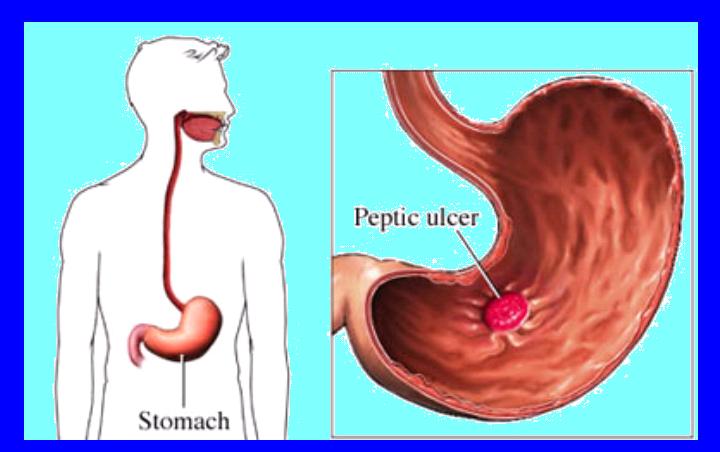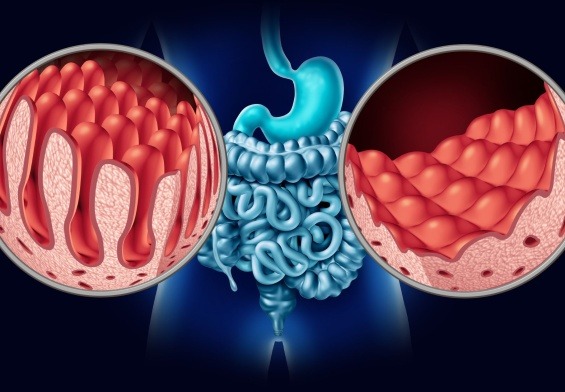 Millions of Americans suffer from stomach ulcers. In fact, so many people in the U.S. have stomach ulcers that we’ve almost become desensitized to the seriousness of this medical condition. Stomach ulcers, sometimes also referred to as peptic ulcers, are worn or eroded areas of the lining of the stomach, esophagus, or small intestine. The term ‘stomach ulcer’ can be a catch-all phrase used by laypeople for a number of ulcerative conditions within the digestive system, but physicians do have more specific terms for them. When stomach ulcers are diagnosed, they are called gastric ulcers. When ulcers of the duodenum are diagnosed, they are referred to as duodenal ulcers. And when ulcers of the esophagus are diagnosed, they are referred to as esophageal ulcers. In layman’s terms, however, these oftentimes fall into the category of stomach ulcers. There are a number of causes or contributing factors to stomach ulcers, including age, smoking, bacteria, use of some medications, excessive alcohol use, and diet. Following is more detailed information from GI doctors regarding the causes of stomach ulcers, as well as measures that can be taken to prevent them. If you think you have a stomach ulcer or are at risk of an ulcer you should contact a gastroenterologist in Queens.
Millions of Americans suffer from stomach ulcers. In fact, so many people in the U.S. have stomach ulcers that we’ve almost become desensitized to the seriousness of this medical condition. Stomach ulcers, sometimes also referred to as peptic ulcers, are worn or eroded areas of the lining of the stomach, esophagus, or small intestine. The term ‘stomach ulcer’ can be a catch-all phrase used by laypeople for a number of ulcerative conditions within the digestive system, but physicians do have more specific terms for them. When stomach ulcers are diagnosed, they are called gastric ulcers. When ulcers of the duodenum are diagnosed, they are referred to as duodenal ulcers. And when ulcers of the esophagus are diagnosed, they are referred to as esophageal ulcers. In layman’s terms, however, these oftentimes fall into the category of stomach ulcers. There are a number of causes or contributing factors to stomach ulcers, including age, smoking, bacteria, use of some medications, excessive alcohol use, and diet. Following is more detailed information from GI doctors regarding the causes of stomach ulcers, as well as measures that can be taken to prevent them. If you think you have a stomach ulcer or are at risk of an ulcer you should contact a gastroenterologist in Queens.
Causes of stomach ulcers
Bacteria
Bacteria called H. pylori (helicobacter pylori) are the major culprit in the development of stomach ulcers. H. pylori are harmful bacteria that live in the lining of the stomach and small intestine. When these bacteria become a problem to the digestive system, they create inflammation within the lining of the stomach and small intestine. This inflammation can erode the stomach lining, causing ulcers and ensuing pain and other accompanying symptoms such as bloating, vomiting, and nausea.
Medication
Non-steroidal anti-inflammatory drugs, more commonly referred to as NSAIDs, can be a contributor to the development of stomach ulcers. NSAIDs include such medications as ibuprofen and naproxen sodium. If these medications are overused, they can lead to stomach ulcers, especially if they are taken on an empty stomach. If you use NSAIDs, be sure to talk to your doctor about how often is too often. Additionally, take all NSAIDs with food, rather than taking them on an empty stomach, which can cause further irritation to the stomach lining.
Age
Age is a contributor to the development of stomach ulcers. Bodies tend to weaken as they grow older, often just due to overall wear and tear occurring over the years. Certain lifestyle choices and behaviors can also have a significant affect on the lining of the stomach, duodenum, and esophagus. These potentially harmful lifestyle choices include smoking, poor diet, and excessive alcohol intake.
Smoking
Nicotine in cigarettes can be a contributor to the development of one or more stomach ulcers. The nicotine contained within cigarette smoke increases stomach acid. Inhaling this nicotine-filled smoke can lead to stomach ulcers. It’s that increased acid in the smoke of a cigarette that can cause inflammation of the stomach lining, leading to irritation and stomach ulcers.
Excessive alcohol
Excessive alcohol use is another irritant to the lining of the stomach, duodenum, and esophagus. Additionally, alcohol intake during ulcer treatment will impede healing.
Diet
Poor diet can be a significant factor in irritating ulcers that are already occurring within the stomach or small intestine. Eating a well-balanced diet that includes nutrient-rich fruits and vegetables is important to maintaining healthy function of the stomach. Many of today’s processed foods are hard on the stomach because they contain little or no nutritional value, and because they contain gluten, which is essentially just an adhesive. Gluten can cause stomach irritation that can lead to stomach ulcers. Additionally, most patients with stomach ulcers have trigger foods that can lead to increased pain and inflammation of the stomach.
Stomach ulcers are sores in the stomach. Just like all sores, stomach ulcers can cause pain and other symptoms, such as loss of appetite, nausea, and vomiting. If you are experiencing any of the symptoms of stomach ulcers, especially if your symptoms are recurring for more than a week, contact a top GI doctor in Queens to schedule a consultation. If you do have a stomach ulcer, it’s vital that you are properly diagnosed as soon as possible in order for necessary treatment to begin. Stomach ulcers can lead to even more serious medical conditions, including cancer of the stomach.



